 Anna Soika & Youngest Child, Nick Anna Soika & Youngest Child, Nick “Why are you scrubbing the floor at nine o’clock at night?” Nicky asked his wife, Anna. “With the coal dust everywhere, it just gets dirty again,” he said. “There are dirty-faced kids all over this coal town, but my children won’t be one of them,” Anna responded, as she used both hands on the brush to scrub the stained wooden floor. Anna couldn’t stand the dirt. That’s not how she was raised during her younger years on the farm in western Ukraine where she remembers deep blue skies, the golden hue of wheat fields, the sweet smell of fresh-cut hay. But now, here she was on her knees scrubbing the dirty floor of the cramped company house in the dust-filled coal town of Farmington, West Virginia, thinking of her children. I can’t keep them clean in this hell hole. Anna thought about the floors, about her children, and about her life following Nicky from coal field to coal field. It was mid-January of 1926, just one week after Greek Orthodox Christmas, and it was cold. Anna had to keep the fire lit in the kitchen in order to scrub the worn floor before it froze and iced over. “Nicky, I need to go to the store tomorrow to buy milk and flour for making bread for the children. How are we doing on money?” Anna asked as she dipped her scrub brush into the gray, dirty water in the wash bucket, afraid of the answer she would get. “We already owe them too much money. I can’t get ahead of the bills with what they pay me,” Nicky complained as he looked away from his wife and to the glowing fire in the kitchen stove. “You’re gonna have to make do,” he said, focusing his gaze on the fire. Life in the coal fields was hard on everyone. The coal companies extracted more than coal from the land. They extracted the health, the livelihood, and the future from the miners and their families. The miners were paid in script instead of dollars because the script could only be spent in the company stores. Too often the script wasn’t enough to make ends meet, especially because the companies inflated prices at the store. That forced the miners to go into debt to the company just to buy food for their families. It wasn’t unusual for the coal companies to make as much money from the miners’ payment for housing and food as they did from selling the coal that the miners dug. Finished with her scrubbing, Anna struggled to get up from her knees as she winced from the kicking baby in her belly. Not quite 30 years old, Anna had four children and now another was just a few months away. “C’mon, Anna, you need to rest. Let’s go to bed,” Nicky said as he held out his callused and coal-stained hands to help her up. Nicky’s a good man, Anna thought, as she gladly grabbed his hands for help. He’s a rascal, but he’s good to me and the children. Nicky had moved his family from Western Pennsylvania to northern West Virginia because he was being hunted by the coal company’s hired police. Nicky was a “bootlegger,” which in the coal business is a fellow who locates a vein of coal to mine on his own, so he can sell his self-dug product to willing buyers. Of course, this was illegal since the coal company owned the rights to all of the coal under all of the mountains in the region. In Nicky’s eyes, everyone got what they needed. He earned extra money for his family; his friends and customers saved money on coal; and the “boss man coal company” took one on the chin. The mining companies blackballed Nicky so he could no longer work in Western Pennsylvania under his own name. The pressure became too much, especially with Anna pregnant again. Nicky moved the family to Farmington, West Virginia, and found work using an alias—Nick Zapatosky—the name under which he would die. The sun rose red the next day in a haze of coal dust. Anna was up early to light the stove and make Nicky his breakfast of coffee and oatmeal. She would have loved to fix him his favorite eggs and sausage, but who could afford that? Nicky finished his breakfast and kissed Anna on the cheek as he put on his well-worn winter coat. “I can go with you to the store when I get home. Maybe we can pry some more credit out of them for food for the kids,” Nicky said as he grabbed his dented aluminum lunch pail and hard hat before stepping into the cold to join his fellow miners trudging through the blackened snow. I’m going to have to get Johnny to help me haul water and get some more wood for the stove, Anna said to herself. She thought about her oldest who wouldn’t turn seven until the end of March, but when his papa was out working, Johnny tried to be the man of the house. Then Anna thought of Edward, a Quaker fellow who had taken a liking to the kids, even giving them oranges for Christmas. Oranges. Where in the world did he get those? Edward was a Quaker and a member of American Friends Service Committee, or AFSC. The Quakers were good to the miners’ families. When the mine workers union was just forming in Pennsylvania and West Virginia, it was AFSC that made sure the families had food to eat during the bloody and protracted labor strikes. Anna’s day was routine. When the children awoke, she gave them a breakfast of warm bread with sugar sprinkled on it because that’s all she had to feed them. The youngest, Julia, got what was left of the milk and the other three drank water. Anna gathered her four children for their daily trek to the community well, where she would pump two pails of water and carry them home, careful not to spill too much. Johnny was in charge of helping the other children find scraps of wood and coal to use for the kitchen fire that day, a job that gets harder as the month wears on and all the miner families are competing for the same scarce provisions. Once home, Anna began her chores by washing Nicky’s clothes so he would have a clean set to wear to the mine the next day, and figuring out what to make for supper. I do have some potatoes left and a jar of carrots that I canned last fall. That will do, she consoled herself. Then suddenly she heard a loud Bang! Bang! Bang! Someone was knocking on their door and speaking frantically: “Anna, we have to get to the mine. Anna, come with me. We have to get to the mine. Something happened.” It was Edward’s voice. Anna opened the door, anxious that this was the news every miner’s wife feared but somehow expected. Once he saw her face, Edward blurted out that there had been an explosion at the mine. Men were trapped; some were certainly dead. Edward had seen this before in other towns with other mines. The women and children could only wait and pray while there was a frantic effort to dig out the survivors—if there were any. To avoid creating a scene, the company would keep the families at a distance from the rescue efforts. Often it took days before the rubble could be cleared out of the mine shaft and the survivors and the bodies of the dead brought above ground. The bodies would be laid out on tarps, side by side on the ground, with no attempt to conceal their bloody and mangled figures from the families. Anna just stared at Edward, trying to grasp what he was saying while thoughts raced through her mind: Is Nicky alive? Is he hurt? Is he dead? Oh my God, if he’s hurt or dead, this could be the death of all of us, Anna reasoned. If there is no miner to dig the coal, the company evicts the family from their home and cuts off credit at the store. Anna turned to her children who were huddled near the kitchen table, “Johnny, get everyone dressed. We have to go to the mine. Something happened.” By the time Anna got her brood moving, they could see the other families rushing through the snow, also heading to the mine. Edward stayed with the wives and family members as they stood vigil, waiting hour after hour for some sign of life exiting the mine. The women were whipsawed by conflicting reports. One of the mine bosses thought that all 48 miners died. Then a mine expert from the state arrived and reassured the families that most certainly there would be survivors. The reality was that no one knew for sure. Each woman was certain her loved ones were alive, but in her heart she was preparing for the worst. After all, that’s what a mine worker’s woman does. She deals with life—no matter how grim or how dirty—and she prepares for death that can come at any moment. It was just after five o’clock on Friday, January 15, when the first miner walked out of the mine, nearly 24 hours after the explosion. First came one, then another, then a few together. One dad walked from the mine and into sunlight with a son on each arm. In all, 23 miners survived. The women couldn’t be contained. They rushed to the exiting miners searching their grimy faces, looking with hope and desperation for the ones they loved. Anna found Nicky’s friend Mykola among the living. “Where is Nicky?” she asked, holding the man by his shoulders while staring into his weeping blue eyes. “Did you see Nicky? Is he still alive?” Mykola knew the answer. All of the survivors had scampered to the livery pens 10,000 feet back into the mine to avoid the lethal methane gas filling up the shafts. Nicky wasn’t among them. Mykola didn’t have the heart to tell her. “He wasn’t with our group” is all he could say as he gave her a deep hug and walked quickly away. That’s how Anna knew. Nicky was dead. She instinctively put her hand to her belly and looked at her children who were gathered around Johnny trying to comprehend what was happening. “Come children, let’s go home. There’s nothing more for us here,” Anna said as she gathered her children, turning her back on the mine, and marched home. Within one week after Christmas, Anna’s husband was dead and the coal company ordered her and her children to move out of the company house and cut off credit to the store. Nicky was one of 19 miners killed by the mine explosion. There were pieces of coal still embedded in his back when they brought his crushed and blood-stained body to the surface more than 30 hours after the blast. Edward talked with the mine workers union, and between the union and AFSC, they raised enough money for Anna to move her children and her husband’s body back to Pennsylvania. She was starting over, a 30-year-old single mom with five children. Anna, a Ukrainian peasant who could neither read nor write, now had to navigate life in Appalachian America during the coming worldwide economic collapse. And she had to do it on her own. The day was cold and sunny when Anna brought Nicky’s body back to Western Pennsylvania. She looked up at the vibrant blue sky and vowed, “We’re home. We won’t be crushed by this.” In June, the air was filled with the clean smell of mountain laurel as Anna walked to catch the streetcar to her job as a janitor, cleaning offices. Author’s note: This story is a fictional account of real events. The child Johnny was my father. My grandmother Anna never remarried and raised her five children alone, working as a janitor cleaning offices at night while Johnny was tasked with caring for his four siblings. The role that AFSC played supporting the miner families with food and supplies during the prolonged and violent strikes in Western Pennsylvania and West Virginia during the early days of the United Mine Workers union is true. 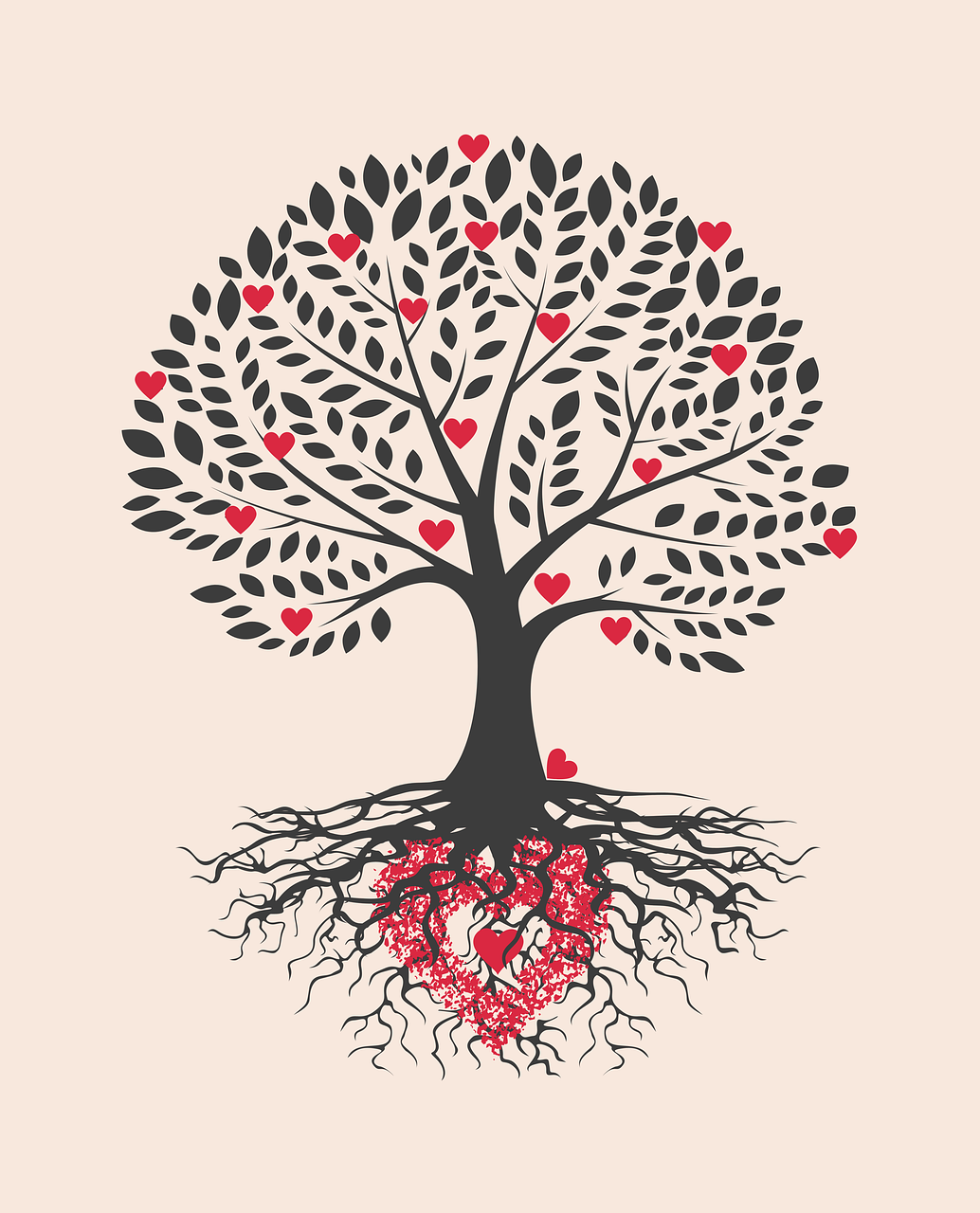 Image by Rosy from Bad Homburg / Germany from Pixabay Maybe the issue isn't to stop sowing bad seed...(but instead) to sow more good seeds The idea of reaping what we sow is often considered at the individual level and usually in the same vein as Karma: the actions we take come back to us in good ways and bad. I find it interesting to look at this concept of reap what we sow at a societal level. Does a society like the United States – collectively – reap what it sows? Perhaps. Here are a few examples.
In America, we sow guns – by the hundreds of thousands throughout the land. Best estimates are that Americans own somewhere between 350 Million – 480 Million guns; in a country of 340 Million people. And what do we reap from all these weapons? We “lead” our peer countries in the number of mass shootings, gun-related homicides; gun-related suicides and most recently, firearms becoming the leading cause of death among children. We also sow carbon dioxide. The US represents nearly 4.25% of the world’s population, but yet we emit 13.5% of the carbon dioxide into the atmosphere; eclipsed only by China according to the organization, Our World in Data. The “harvest” from this overabundance of carbon dioxide is a growing number of climate disasters such as excessive heat waves, drought, floods, wildfires, and hurricanes. NOAA charts US climate disasters based on the total cost of the damage wrought by each incident. According to NOAA, 2022 marked the eighth consecutive year with 10 or more billion-dollar disaster events impacting the United States. In the past, the US experienced about 8 such events per year, but within the span of 2018 – 2022, we averaged nearly 18 events per year – more than double the historical number. We also sow plastic; tons and tons of plastic. The production of plastics, which are made from fossil fuels, has increased at exponential levels. Half of all plastic – ever produced – was made within the past 15 years. Consider this, in 1950 we produced a mere two million tons of plastic. By 2015, we were producing nearly 450 million tons of plastic per year, and if unabated that number will double by 2050. And the biggest producer of plastic waste in the world? The United States. What do we get from sowing all this plastic? Some studies estimate that there are between 15 – 51 trillion pieces of plastic floating in the world’s oceans. In fact, the plastic garbage patch floating in the Pacific Ocean is large enough to encompass the combined midwestern states of Wisconsin, Minnesota, South Dakota, Illinois, Indiana and half of Ohio. This sea-borne plastic begins to break down chemically from the interaction of sun, waves and seas into tiny “microplastic” particles, which have been found in every part of the world from the peaks of Mount Everest to the Mariana Trench – the deepest trough in the ocean. Microplastic particles breakdown into exceedingly smaller particles and seep into drinking water systems and into peoples’ lungs through the air. Clearly, we the people of the United States are sowing some pretty nasty seeds and reaping untold carnage on ourselves and others. But, what are we to do? Well, the simplistic answer is to stop sowing bad seed. Of course, that’s not so easy. Countless numbers of individuals and organizations have been working for decades to stop the spread of guns and plastic waste, and to limit the production of carbon dioxide – with little significant success. To me, all of these bad seeds stem from the same problem: people are trying – unsuccessfully – to fill a gaping hole in their heart. We look around and see a breakdown in community so we become fearful of others; fearful that life as we know it will be taken away; fearful that there won’t be enough resources to go around and thus greed and hording begins to take hold. Many of these issues seem so large and intractable that a sense of powerlessness sets in and we begin to resign ourselves to a future of dwindling possibilities. Maybe the issue isn’t to stop sowing bad seed, as much as it is to redouble our efforts to sow more good seeds. We Quakers like to say that there is “that of God” in every person. Put another way, we can say that the seed of the Divine is present within everyone, and what is needed is to shine the light of God deep enough, wide enough, and strong enough to bring that seed forth from each individual. As advised by Maxine Hong Kingston, “In a time of destruction, create something. A poem. A parade. A community. A School. A vow. A moral principle. One peaceful moment” The light of God is within you. Let that light shine so others may blossom and illuminate the world.  Image by Rudy and Peter Skitterians from Pixabay I just had to laugh, and ask myself, what is the lesson I can take away from this I went to our back yard garden to sit in my favorite blue Adirondack chair, surrounded by white and yellow daisies and wildflowers my wife has cultivated over the years. I wanted to listen to the birds while meditating. I don’t often do this – go outside to mediate - but this year, we seem to have more birds chirping and singing in our yard than at any other time in the 36 years we’ve lived here. I was looking forward to the joy of having birdsongs guide my way to stillness. I was just beginning to settle into my meditation, when a neighbor from two doors down started up his very loud, gas powered lawnmower. Knowing that my neighbor’s yard is smaller than mine, I figured he would only be mowing for about 20 minutes at the most and that I could find a way to ignore the noise as I tried again to settle into thoughts of peace. Being a Quaker, I’ve learned that seeking the Divine requires quiet and not necessarily silence. Sure enough, in less than 20 minutes the lawnmower stopped. The silence was stark and welcomed, the sound of the birds re-emerged and I found myself smiling. I could once again focus on the bird songs, on the weight of my body on the chair, on my rhythmic breathing as I allowed my thoughts to float past, as if they were leaves in a stream. Whap, Whap, Whap, Whap, Whap – the sound of my neighbor’s weed whacker punctured my reserve. Jesus, I thought to myself, come on! But then I caught my growing agitation and refocused my energy on letting things go. Letting my irritation go. Letting the sound of the motor sink to the background. This letting go was working and shortly, the motor stopped and the silence returned. Thank you – I thought to myself. Even with all the interruptions I was finding some stillness while sitting in our garden. I was pleased that I didn’t allow the noisy lawn care to drive me inside. Suddenly, I was startled by the high pitched whine of a leaf blower the same neighbor was using to blow the grass clippings off his sidewalk and back onto the lawn. At this point, I just had to laugh, and ask myself, what is the lesson I can take away from this comedy of meditative challenges. As I sat there listening to the relentless sound of machine blowing grass and dust into the air I had a sense that even though it was irritatingly loud, the man and the leaf blower were both connected to the universe. I went to my backyard to find the Divine in the sound of the songbirds. Instead, I found the Spirit of God through the intrusive roar of a leaf blower. My meditative thought is that the Spirit is everywhere and cannot be ignored anywhere; that the whine of a lawnmower is just as much the sound of the Divine as is the melody of the songbird. If the Spirit is active and present within every person, then what is needed is a conversion of heart. Are we spiritual beings having a human experience or are we human beings having a spiritual experience, is the famous question asked by Jesuit priest and philosopher Pierre Teilhard de Chardin. I believe it is the former, that we are spiritual beings at our core. But, taking it one step further, I also believe that everything within the Cosmos has a spiritual foundation; that the spirit of the Divine is woven throughout the universe and that God is the weaver.
If it is true that the Spirit is woven through all things and for all time, then there can be none other than a spiritual solution to any problem. In this context, all problems become spiritual problems. A few years ago, I was having an online conversation with a conservative Christian friend about what the bible says on the matter of the division between church and state. My friend – a bible literalists – was adamant that there is a clear demarcation between church and state, citing the new testament passage of Mark 12: 13-17 where Jesus takes a coin with the likeness of Caesar and announces that all should “give to Caesar what is Caesar’s and to God what is God’s.” The question Jesus answered was about paying taxes. What I believe he was getting at is this: What in the cosmos does not emanate from God? If you are arguing over whether the religious should pay taxes, you are focused on the wrong question. If everything comes from God, what does it matter? Pay the silly taxes to keep yourself out of harm’s way – but don’t lose sight of the fact that everything comes from the Divine. From my perspective, Jesus was saying that everything is spiritually focused; that we actually live in a spiritual world but get lost and confused in our worldly machinations. A Quaker F/friend of mine has spent many an anxious moment pondering what can a person do to raise the consciousness of the general public – and of our leaders and decision makers – about the pending environmental disaster unfolding within our lifetime and most certainly within the lifetime of our children and grandchildren. We Quakers believe there is “that of God” within everyone, and that the voice of the Divine leads and guides each of us. If that is true – and I believe it is – then God is at this very moment whispering to those recalcitrant decision makers that the earth is crying out; that they need to pay attention; that they need to act. Now. If the Spirit is active and present within every person, then what is needed is a conversion of heart. What is needed is a spiritual revival to awaken all to the call of the Divine on climate change; on gun control; on voter repression; on race, on equality, and on all other issues of justice and decency. How do we get there, how do we get to this global conversion of heart? We pray… for ourselves, for those who are or will be impacted by these issues, and for the decision makers – that they will quiet themselves enough to hear the faint whisper of the Divine and act on it. Is prayer enough? No. If prayer were enough, these seemingly intractable issues would be resolved. We must listen to the voice of God within our own heart and act on what we hear. We must become models of a people who are spiritually focused and who believe – whole heartedly – that the answer to all problems is spiritual. After all, we are a spiritual people living in a spiritual world, seeking a spiritual solution. Perhaps renowned spiritual leader Henri Nouwen said it best: “Every time in history that men and women have been able to respond to the events of their world as an occasion to change their hearts, an inexhaustible source of generosity and new life has been opened, offering hope far beyond the limits of human prediction.” We must pray. We must act. We must believe that our prayers and actions will be enough. And then, we must give over everything else to the Divine. There is a lot we can learn from children, if we just open our eyes and our hearts I have the joy of helping to care for our toddler granddaughter every Thursday, and on a recent visit, I was struck by how her words and actions could be translated into solid management techniques. I know what you might be thinking. Many of us have had the unfortunate experience of working for a supervisor who acted like a toddler; who thought only of him/herself or who threw temper tantrums when things didn’t go their way. But that’s not what I’m talking about here. There are positive lessons we all can learn from observing little ones at play. Following are a few examples. Know What You Want and Provide Clear Directions – Any employee who has tried to get a clear directive from a waffling or overtly political manager can appreciate the explicit tone of a toddler. There is no ambiguity about what our granddaughter likes nor in what she wants from adults. “Pop-pop (her name for me), sit here and read the Color book with me.” “You wear the green hat, I want the red one.” “I’m going to hide in the closet, you stay here.” Clear. Simple. Direct. Be Authentic but Don’t Take Yourself Too Seriously – There is nothing more frustrating or disempowering in an organization than a manager that tries to be all things to all people. It is equally important for a good manager to have a sense of humor and to not take themselves too seriously. I’ve worked with managers who put themselves and their career above the good of their employees and the organization causing suspicion a chaos in their wake. That’s not what you get from toddlers who have no guile and who are uniquely comfortable within themselves. Our granddaughter is exactly who she is and spends zero time considering how she may come across to those around her. She will happily place heart and butterfly stickers all over her face and dance around the house feeling all the more special for it. She will make a noise with her mouth and then laugh boisterously over her “joke.” Happy is the organization when a manager can laugh at themselves, acknowledge their mistakes, and move on. Be Kind and Inclusive – A good manager will ensure that everyone is cared for within the organization. Employees will be more loyal to the company and will take more risks if they believe their manager has their back. My granddaughter innately knows this. If we are playing tea party, she makes sure that everyone gets a cup and a cookie. If I’m off in another room and happen to cough, our granddaughter will come running to me to ask “are you OK Pop-pop?” Here’s a real-world story that I wish every manager could emulate. My daughter is a teacher and one day last year her school experienced a “code red,” meaning there was serious trouble in the building. Everything turned out fine, but she was shaken. On her ride home she called me, just to talk. She finished up our conversation saying, “I just want to go home and hug my baby.” My daughter did go home and hug her baby (my granddaughter) who was 15 months old at the time. As she hugged her child, my daughter began to cry. Seeing her mother distraught, our granddaughter took the pacifier out of her mouth and handed it to her mom – knowing intuitively that her mom needed comforting from it more so than she. If a manager showed me that amount of kindness and empathy during a time of turmoil and strife, they would have my undying loyalty. There is a lot we can learn from children, if we just open our eyes and our hearts and get out of our own way. For me, it can all be summed up to this: be honest, be authentic and be kind and everything else will take care of itself. There is no universe without a conscious presence to perceive it Science has caught up with what mystics and religions have been saying for hundreds of years: that there is a singular consciousness unifying everything and that death is no more than a transition from one perspective to another.
Quantum theory – through decades of propositions and experiments - has upended scientific thinking about how the universe operates at both the micro and the macro level. Here are just a few of the revolutionary ideas that have now become accepted fact among many in the world of physics:
A similar experiment split the wave into two pathways, one shorter than the other. At the end of the longer path is a meter to measure the wave. A lab assistant randomly turns the meter on and off. As expected, when the wave that had taken the longer path is measured, it turns into a particle. Amazingly – the partner wave that split and took the shorter path – retroactively turned into a particle, as well. The split waves are said to be “entangled” and the two act as one entity – doing so even when they are hundreds or thousands of miles apart. When one changes, the partner particle matches the change and seems to do so instantaneously, calling into question the actual nature of space and time. A couple of quotes from the famous physicist Stephen Hawking may be helpful…or not: “ There is no way to remove the observer – us – from our perceptions of the world…the past, like the future, is indefinite and exists only as a spectrum of possibilities.” “..One day there may well be proof of multiple universes. It would not be beyond the realms of possibility that somewhere outside of our own universe lies another different universe…” So, here is what we have so far: entangled waves in superposition wait - possibly in multiple universes – for an observer to birth them into existence as matter. One has to remember this isn’t science fiction, but rather it is a set of proposals supported by a growing number of leading physicists, three of whom won the 2022 Noble Prize for their experiments on this very topic. This raises all kinds of vexing questions, not the least of which is: what is the role of consciousness in these developments? And, even more fundamentally – what is consciousness? Dr. Robert Lanza – hailed by Time Magazine as one of the world’s 100 most influential people – has written several books on Biocentrism that weaves together the concepts of quantum theory with the idea that it is consciousness that created the universe and not the other way around. And if there is no universe without a conscious presence to perceive it, then the only logical conclusion is that there must be a universal consciousness beyond our individual sense of self. Lanza is one of many proponents of the Multiple Universe Interpretation of quantum theory, suggesting - like Stephen Hawking - that possible alternatives of life may be occurring now in multiple universes. For example: In one universe Russia succeeded in sweeping through Ukraine in a matter of days, while in another universe there was no war at all and Ukraine won back its occupied territory through diplomatic initiatives. Finally, Lanza speculates that consciousness never ends, and quite possibly we just transfer our conscious self into another alternate universe. There is so much of quantum theory that I find baffling and have a difficult time to comprehend fully. Kind of like religion or spirituality. There is a great deal that can be read about the individual soul and the Divine, but at some point belief comes down to a quiet faith. Now that, I think, I can handle. Attend to your own heart I read an article recently that caused me to ponder my own spirituality. The article described how both of the conservative candidates for WI Supreme Court graduated from the same evangelical based law school founded by the TV evangelist Pat Robertson. It further described how Wisconsin judge Jennifer Dorow begins each weekday by reading her bible and praying.
My theology is this: if you open yourself up to the Divine, then you will be led to the work you were meant to do to realize the Kingdom of God on earth. Now. My experience of the Spirit is that the Divine is a God of love, of relationship, of preferential options for the poor, of justice, of mercy. I do not doubt that Judge Dorow’s faith is real. But how can someone who sits in the presence of the Spirit every day come to a place where she says the worst decision by the U.S. Supreme Court was the one striking down Texas anti-sodomy laws which opened the doors for legal same-sex marriage? Is Judge Dorow praying to God and not listening for God? Or, am I listening for God but mistaking my own voice for that of the Divine? Is one of us wrong? Can both of us be right? Can God be leading us both in ways unfathomable to our conventional understanding? I brought this conundrum with me to my Quaker Meeting for Worship where I can hand over my concerns and wait in expectant silence to see if a path forward emerges. On this topic I received a clear and compelling answer; one that is so simple that it made me chuckle to myself while sitting in silence. The answer was this: Don’t worry about it. Don’t concern yourself with why or how others may be led. Simply listen for your own leadings and act on them. Attend to your own heart and give everything else over to God. Often in life it may feel as if we are climbing a mountain in darkness The phrase “we lift as we climb” has a powerful pull on me. It assumes that the goal of climbing is not to reach the summit alone, but to ensure that everyone else ascends to the top of the mountain as well.
I have been fortunate to experience this type of community effort at multiple stages of my life, mostly while working as a community organizer in numerous places across New England and in the Midwest. I have also found it, in a more quiet and peaceful version, with the Quaker community here in Milwaukee. At the Milwaukee Friends Meeting (Quakers), where I’m a member, we have no clergy to lead us or to manage the day to day activities of the congregation. Everything we do can only get done if someone from the congregation steps forward to make it happen. For example, Adult Religious Education is led by a committee of volunteers. Care for those who are sick or those who are in crisis, or those who are in need of food or financial assistance is managed by committees. Upkeep of the building and the 3.5 acres of nature preserve under our care is managed by volunteers. We donate generously to the broader community and work to feed the hungry and homeless in our midst. We have a vibrant Meeting as evidenced by the fact that we are roughly 130 members (including children and teens), but yet we have more than 30 active committees. But the most evident way we lift as we climb is in how we nurture the spiritual growth of each other. We Quakers have a wonderful tradition of helping people who are struggling with questions about life or spirituality. It is called a “clearness committee,” and it is the most empowering activity that I have ever encountered. The wisdom of the clearness committee is the fact that wisdom is not imparted from one person to another, but rather, wisdom is discovered within oneself. The only thing a seeker may need is a small group of friends to sit with them – asking open ended questions - to help them come to clarity. During the clearness committee process, there is no attempt to fix, or advise, or counsel the person seeking guidance. Rather, it is a deeply spiritual encounter where everyone present strives to hear their inward voice whispering from the depths of their soul, having faith that clarity will come from that voice. The other kind of lift as you climb community building I have seen up close was through my years of experience as a community organizer. I loved being a community organizer. I was taught that an organizer’s job was NOT to win on issues – although that was a critical component. But that the primary job was to build up new community leaders and to create a neighborhood powerbase that city hall and drug dealers and absentee landlords were forced to deal with. I wasn’t allowed to talk at public meetings, as that was a job reserved for community leaders. If a decision was to be made, it was my job to bring it to the neighborhood leaders and help them work through the various scenarios to arrive at a solution that would be supported by the broader community. But the decision was theirs, and the leaders were required to bring the decision to the community to garner support. We were all climbing forward – trying to build a new power dynamic in the community – each helping the other while each holding the other accountable for the commitments they made. No one got a free ride. If you were a community leader, you got the most doors to knock on and the most phone calls to make. If you were a community leader, you were expected to bring your recommendations to the broader community so that everyone would be involved in the decisions shaping their lives. I will never forget one of my most proud moments as an organizer. I had been working in South Providence, Rhode Island with this tiny block club that was fighting with the city to clean up the 15 or so vacant lots on the block. These lots had become a midnight dumping ground and a breeding ground for rats. The city wasn’t responding, so our leaders convinced their neighbors to march to city hall where they stormed into the office of the Commissioner of Public Works. We had 20 or so residents ignoring the pleas of DPW office staff who tried to stop us as we walked straight into the Commissioner’s office. When all were in the office, our block captain loudly shut the office door and locked it. She then turned to the Commissioner and said, “My name is Connie Carter and I’m not leaving here until you agree to clean up our block.” She locked the door! She announced her presence. Everyone in the room felt the power shift immediately from the Commissioner to the people in general, and to Connie in particular. In that moment, Connie lifted her entire block as we all climbed together, one step closer to a better neighborhood. Often in life it may feel as if we are climbing a mountain in darkness. If we are fortunate, we will hear the voice of a friend saying “don’t worry, I’ve got you,” as a firm hand reaches down to guide us safely forward. What is clear to me is that we only get to the mountain top together, and to do so, we must each lift as we climb. every group has an insider clique. My smart aleck quip is that there were only 12 Apostles I feel like I’ve spent my entire life straddling the line between the “inside group” and the outsiders. In high school, I was friendly with the “cool kids” but felt more at home with the mountain boys and the greasers. As a public policy advocate, I got to the point where mayors and governors and many elected officials knew me by sight and by name, and were friendly (for the most part) but I never had any delusions that I was ever really at the table with them (except for my stint as chief of staff to the mayor of Milwaukee. But that’s a story for another day.)
It has been my experience that every group has an insider clique. My smart aleck quip is that there were only 12 Apostles – while the crowds following Jesus sometimes numbered into the hundreds. Did you ever wonder about the 13th Apostle; that liminal soul who was close enough to the “insider group” to have a sense of what was going on, but who remained an outsider - acknowledged but not fully accepted into the heart of the band of believers. In fact, we do know who was the 13th Apostle (Acts 1:21-23). His name was Matthias and he was chosen (by casting lots) to replace Judas. In order to qualify for the position a candidate needed to be among the group from the beginning when Jesus was baptized and up and through the time he was taken away. And only two men made the list: Matthias and Joseph. One has to wonder whether any women met the criteria but who were excluded because of gender bias. Inner circles, outer circles, who is in and who is not. These are issues plaguing groups since our early ancestors fought over who slept close to the fire and who was relegated to the cold and frightful dark of night. What does this dynamic tell us about the human condition? And what does it say about each of us as individuals who crave to be included? The mystics tell us that our need to be acknowledged and accepted is nothing more than our little ego crying out for attention. And, that if we were spiritually grounded, we would realize that we are magnificent transcendent beings playing hide and seek in a human body. I must admit, I’m often not that enlightened. I try, and sometimes catch a glimmer of the warm light of the Divine. But for the most part I fail to live a life rooted in the knowledge that I am one with the Spirit. I find myself craving love and attention. I often measure my worth against others who seem to have it more together. I realize that this self-doubt is directly related to the amount of time I spend in contemplative prayer. Little time in prayer results in a lot of time in doubt. What I learn in prayer – and must relearn time and again – is that I am God’s beloved. And nothing I do or say can change that. God’s love can’t be earned and it can’t be lost. It just is. Whether there were 12 apostles or 14 is immaterial. Creating an inner circle and an outer circle is a human construct that reinforces a false sense of self. The secret is that we are all apostles. We are all part of the inner circle. It was Voltaire who said “God is a circle whose center is everywhere and circumference nowhere.” For all of us who have spent most of our lives on the outside, yearning to be on the inside – like Joseph and Matthias - I’d like to say that being an apostle is a big deal. But, it’s a group to which we all already belong. Given my dreary disposition, it was clear something had to change. I turned 70 this summer, and it wasn’t an easy transition. I found myself thinking about all the potential losses I had in front of me. For example, I’m pretty sure I won’t be around to see any great grandkids and I’m not sure I will be able to “dance at my granddaughters’ wedding” since the oldest is six and the youngest will turn two in December.
I wondered how many years of sailing I have left, as my knees are becoming increasingly stiff and I’m not as nimble as I once was scurrying around a moving boat. I don’t want to become a liability and I don’t want to end up as one of those skippers who can only (and barely) just sit and steer the vessel. My father died at age 66 from early onset of Alzheimer’s disease. And now – every time I forget a name or why I walked down to the basement - I pause and wonder: is this how it starts. I remember being a teenager, lounging in my bedroom reading a Sargent Rock comic book and hearing my dad talking downstairs. I went down to see who happened to visit – only to find my dad reading a book out loud. Now, there were two things odd about this: one, that he was reading a book at all as that’s not something I ever saw him do before or after; and two, the fact that he was doing so – out loud. When I asked what he was doing, he just shrugged it off and said he wanted to “hear how the words sounded.” In retrospect, it is clear that he could feel his mind slipping and he was trying to find a way to stave it off. At the time, Alzheimer’s disease wasn’t commonly known, at least not in the circles I ran with in rural Western Pennsylvania in the late 1960s. You see where this was going. I mentally ran through every malady I knew of in my family’s history and imagined how each was a sentence hanging over me. Will I end up with macular degeneration like my mother– or kidney disease that incapacitated my grandfather? My uncle died from heart failure and my maternal grandmother became senile in her advanced years. Is that my fate? Clearly, as I approached turning 70, I became focused on a life of diminishing returns: one of lost opportunities, physical incapacitation, and mental instability; a life of increased strife and an absence of joy. Given my dreary disposition, it was clear something had to change. Since becoming a Quaker, I have a touchstone reading that helps to ground me. It is from Isaac Pennington – a 17th century Quaker: “Give over thine own willing. Give over thine own running. Give over thine own desire to know or be anything. And sink down into the seed God placed in thee and let that be in thee and grow in thee and act in thee. And know, through sweet experience that God knows that, God owns that, God loves that and will provide your life’s inheritance according to his portion.” For me, this quote reflects a Zen teaching: Acknowledge your feelings and desires, but don’t own them. Give them over and then, focus on the present. Upon contemplation, what I realized is that I have little control over what illnesses may befall me or how long I may live. What I do have control over is my ability to appreciate the here and now: the amount of love I share with my family and friends and my ability to drink in and savor the moments – whether playing with my granddaughters or sailing or sitting in the yard watching the butterflies or talking about the day with my wife over a cup of coffee. I am healthier now than I likely will be in 20 years. The same can be said for my mental capacity or my sailing skills. It is easier for me now to crawl around on the floor with my granddaughters than it will be years from now. From that perspective, I don’t want to waste the joys of the present in painful fear of a debilitated future. Now, I see 70 as the youngest I will be for the rest of my life so I plan on enjoying every minute of it. Or as my favorite poet Mary Oliver wrote: “It is a serious thing / Just to be alive / On this fresh morning / In this broken world.” |
AuthorMike Soika has been a community activist for more than 30 years working on issues of social and economic justice. His work for justice is anchored by his spiritual formation first as a Catholic and now as a Quaker. Pre 2018 Archives
|

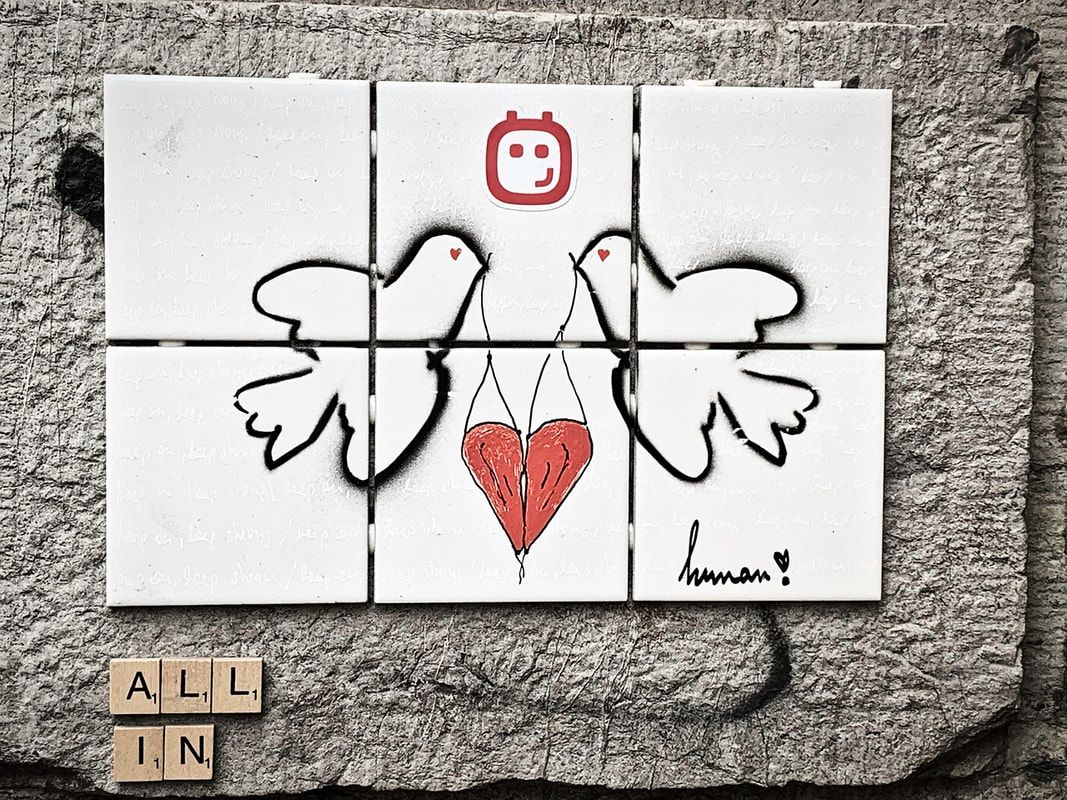
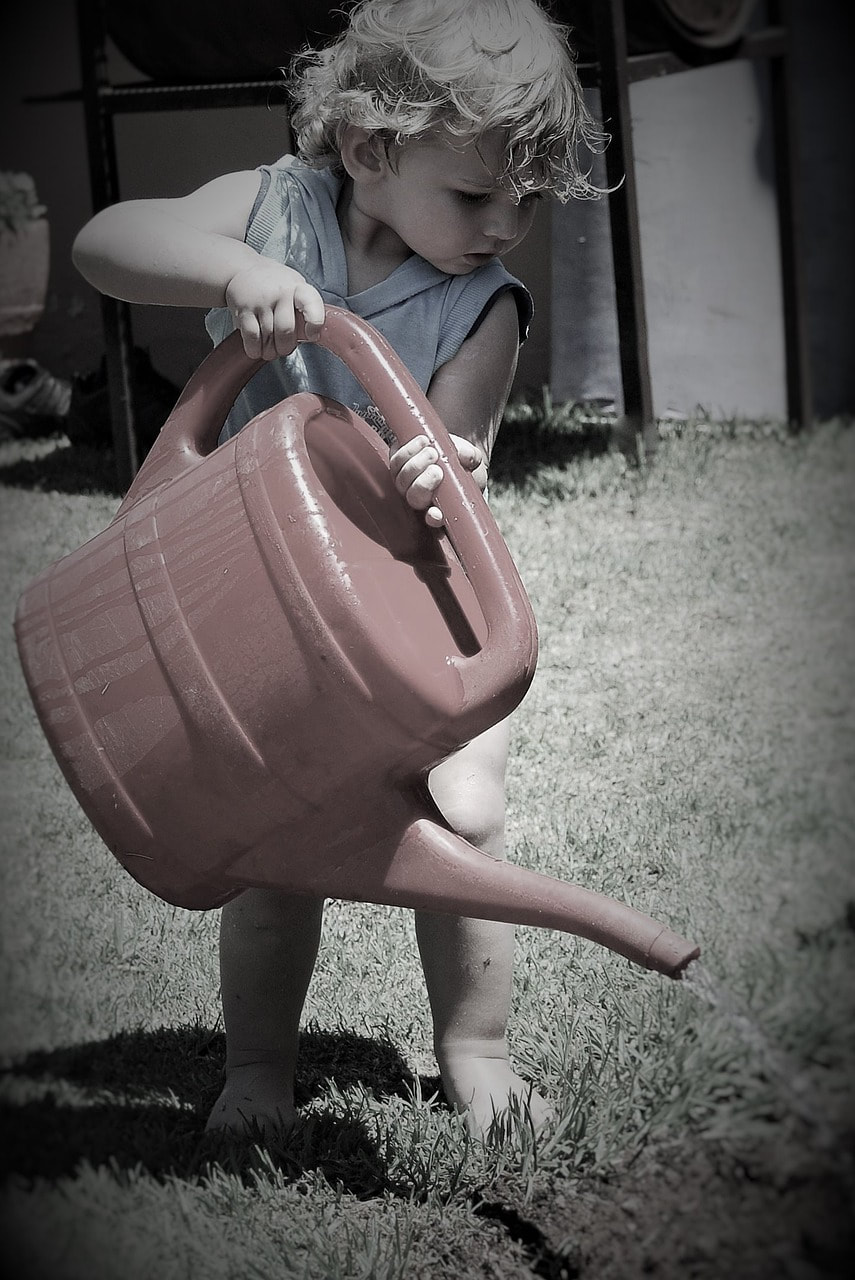

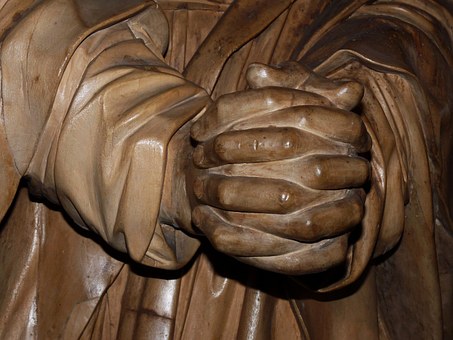
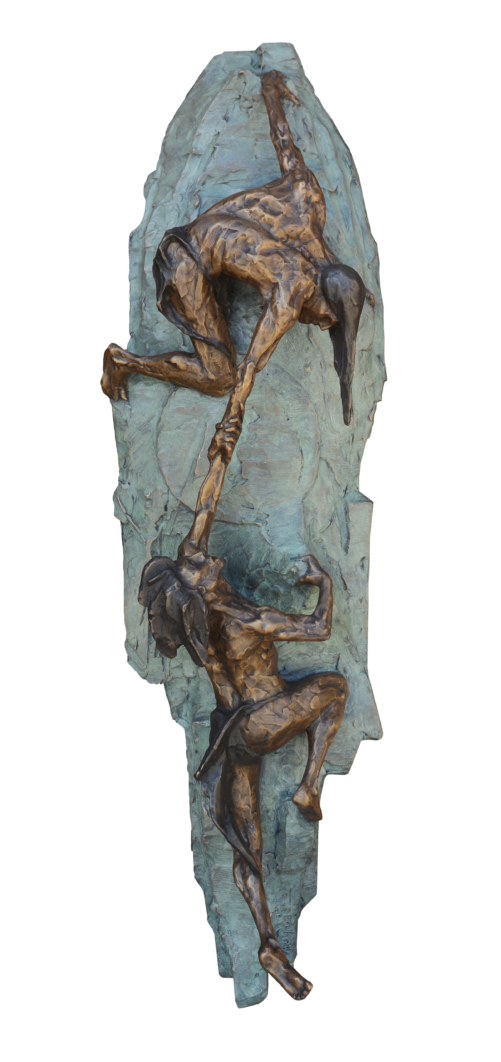
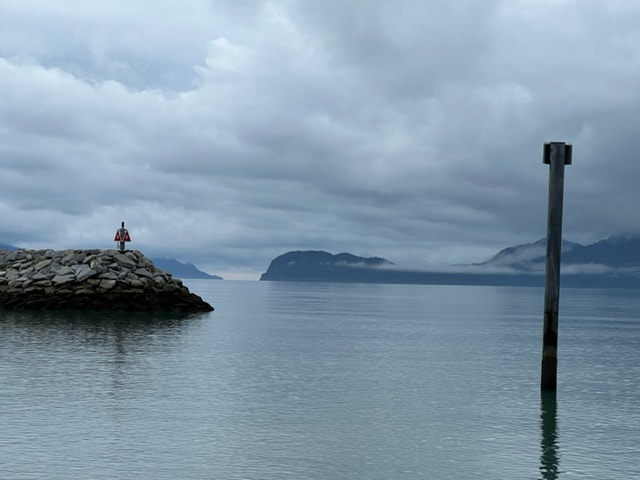

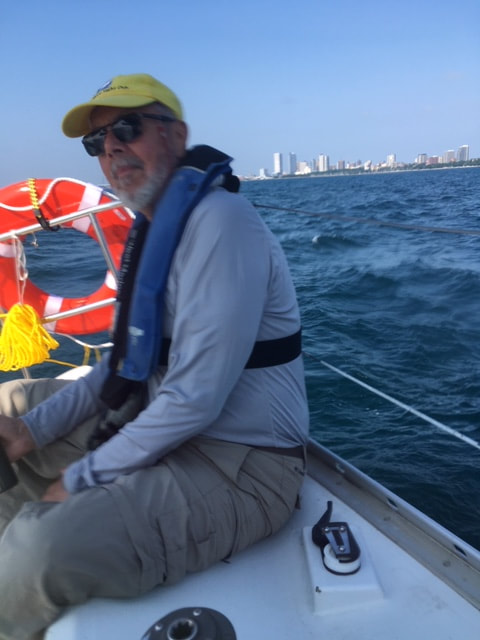
 RSS Feed
RSS Feed
